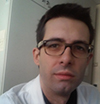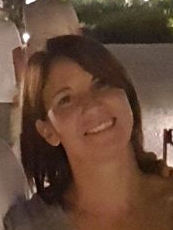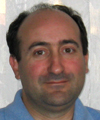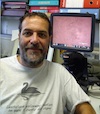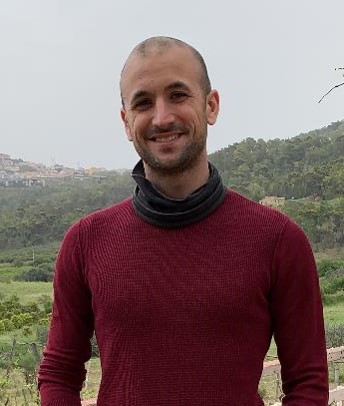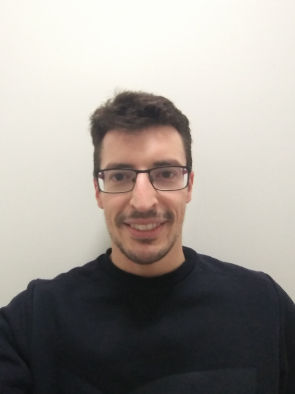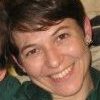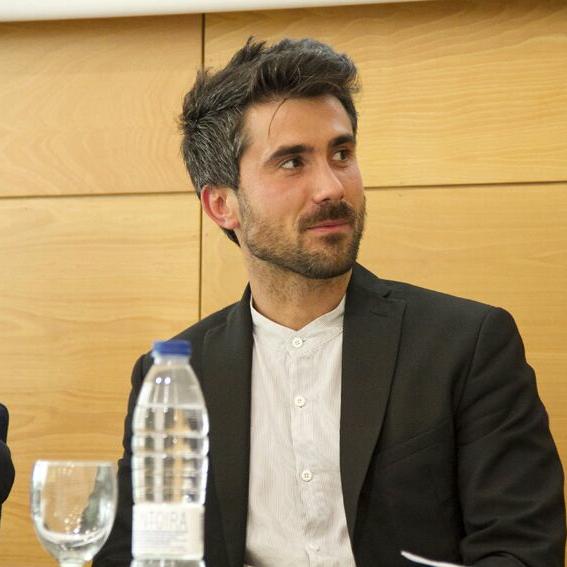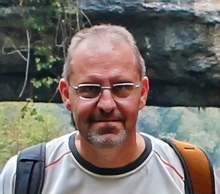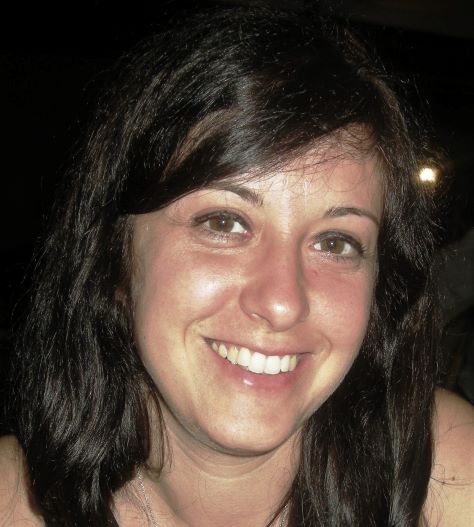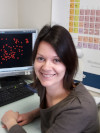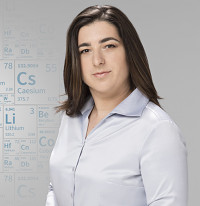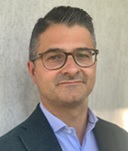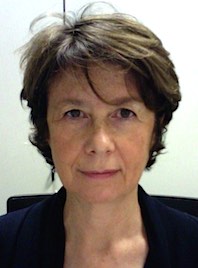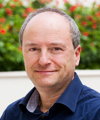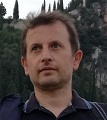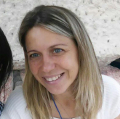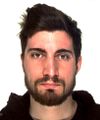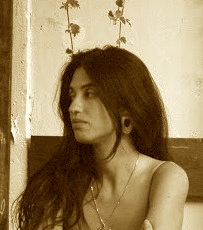Studying at the University of Verona
Here you can find information on the organisational aspects of the Programme, lecture timetables, learning activities and useful contact details for your time at the University, from enrolment to graduation.
Academic calendar
The academic calendar shows the deadlines and scheduled events that are relevant to students, teaching and technical-administrative staff of the University. Public holidays and University closures are also indicated. The academic year normally begins on 1 October each year and ends on 30 September of the following year.
Course calendar
The Academic Calendar sets out the degree programme lecture and exam timetables, as well as the relevant university closure dates..
| Period | From | To |
|---|---|---|
| I semestre | Oct 1, 2020 | Jan 29, 2021 |
| II semestre | Mar 1, 2021 | Jun 11, 2021 |
| Session | From | To |
|---|---|---|
| Sessione invernale d'esame | Feb 1, 2021 | Feb 26, 2021 |
| Sessione estiva d'esame | Jun 14, 2021 | Jul 30, 2021 |
| Sessione autunnale d'esame | Sep 1, 2021 | Sep 30, 2021 |
| Session | From | To |
|---|---|---|
| Sessione estiva di laurea | Jul 16, 2021 | Jul 16, 2021 |
| Sessione autunnale di laurea | Oct 11, 2021 | Oct 11, 2021 |
| Sessione autunnale di laurea - Dicembre | Dec 6, 2021 | Dec 6, 2021 |
| Sessione invernale di laurea | Mar 9, 2022 | Mar 9, 2022 |
| Period | From | To |
|---|---|---|
| Festa dell'Immacolata | Dec 8, 2020 | Dec 8, 2020 |
| Vacanze Natalizie | Dec 24, 2020 | Jan 3, 2021 |
| Epifania | Jan 6, 2021 | Jan 6, 2021 |
| Vacanze Pasquali | Apr 2, 2021 | Apr 5, 2021 |
| Festa del Santo Patrono | May 21, 2021 | May 21, 2021 |
| Festa della Repubblica | Jun 2, 2021 | Jun 2, 2021 |
| Vacanze estive | Aug 9, 2021 | Aug 15, 2021 |
Exam calendar
Exam dates and rounds are managed by the relevant Science and Engineering Teaching and Student Services Unit.
To view all the exam sessions available, please use the Exam dashboard on ESSE3.
If you forgot your login details or have problems logging in, please contact the relevant IT HelpDesk, or check the login details recovery web page.
Should you have any doubts or questions, please check the Enrollment FAQs
Academic staff
 elisa.artegiani@univr.it
elisa.artegiani@univr.it
 chiara.broccanello@univr.it
chiara.broccanello@univr.it
 flaminia.malvezzicampeggi@univr.it
flaminia.malvezzicampeggi@univr.it
 giulio.mazzi@univr.it
giulio.mazzi@univr.it
 chiara.nardon@univr.it
chiara.nardon@univr.it
 franco.zivcovich@univr.it
franco.zivcovich@univr.it
Study Plan
The Study Plan includes all modules, teaching and learning activities that each student will need to undertake during their time at the University.
Please select your Study Plan based on your enrollment year.
1° Year
| Modules | Credits | TAF | SSD |
|---|
2° Year activated in the A.Y. 2021/2022
| Modules | Credits | TAF | SSD |
|---|
3° Year activated in the A.Y. 2022/2023
| Modules | Credits | TAF | SSD |
|---|
| Modules | Credits | TAF | SSD |
|---|
| Modules | Credits | TAF | SSD |
|---|
| Modules | Credits | TAF | SSD |
|---|
Legend | Type of training activity (TTA)
TAF (Type of Educational Activity) All courses and activities are classified into different types of educational activities, indicated by a letter.
General Microbiology (2021/2022)
Teaching code
4S008408
Credits
9
Language
Italian
Scientific Disciplinary Sector (SSD)
BIO/19 - MICROBIOLOGY
The teaching is organized as follows:
teoria
laboratorio [1° turno]
laboratorio [2° turno]
Learning outcomes
Module: THEORETICAL LECTURES The course is designed to introduce students to the basic knowledge of the microbial world as well as to illustrate the main methodological tools for research in microbiology, with a detailed comparison of the properties among the different type of microorganisms, both prokaryotes and eukaryotes, including bacteria, archaea, yeasts, filamentous fungi, and - in a distinct section, since non-cellular organisms – the viruses. During the first series of lectures, general themes will be addressed such as morphological and functional diversity, genetic, biochemical and metabolic features, evolutionary aspects and ecology of microorganisms, including how they interact with specific environmental factors. In the second series of lectures, microorganisms will be discussed as reference systems for fundamental studies dealing with molecular biology as well as biochemistry and metabolic regulatory mechanisms. Also elements will be provided about the methods for microbe cultivation and on strategies for the control of microbial growth and the conditioning of the metabolism. The third part of lectures will cover the detailed study of particularly important microbial groups to be defined with the Students. Module: LABORATORY PRACTICES This laboratory module is designed to guide students in the acquisition of techniques and in the development of manipulative skills all necessary for the identification and the study of both structural and functional characteristics of the microorganisms of interest, as well as for a proper handling of microbial cultures within research activities. The main objective of the module is to provide students with the basic tools, represented by traditional analytical procedures in microbiology, but also with the knowledge of advanced techniques, based on molecular methods of investigation, useful for basic research but even the definition of the correct approach to issues related to the many themes of applied microbiology.
Program
------------------------
MM: teoria
------------------------
1. MICROBIAL EVOLUTION AND DIVERSITY: Origin and Evolution of the Microbial Life; Bacteria; Archaea; Eukaryotic Cell and Eukaryotic Microorganisms; Microbial Taxonomy and Systematics.
2. PRINCIPLES OF MICROBIOLOGY: Cell Structure and Function in Bacteria, Archaea and Fungi (Yeast and Moulds);
3. MICROBIAL GROWTH: Microbial Nutrition, Culture and Growth Aspects; Antimicrobial Agents and Microbial Growth Control.
4. METABOLIC DIVERSITY: Phototrophy and autotrophy , Aerobic (EMP pathway, Enther-Doudoroff pathway, Hexose Monophosphate Shunt + electron transport chain and proton motive force generation) and Anaerobic Respiration Fermentations (homolactic and heterolactic, mixed-acid, butane-diol, propionic, butanol/acetone fermentations), Chemolithotrophy; Other biosyntheses (ammonia assimilation, nitrogen fixation).
5. VIRAL DIVERSITY: Overview of Different Viral Groups; Bacteriophages.
6. HINTS on BACTERIAL GENETICS: Mutations; Genetic Recombination: Transformation, Conjugation, Transduction, and MOLECULAR BIOLOGY AND GENE EXPRESSION Molecular Biology of Bacteria: Cloning Vectors and Expression Vectors; Regulation of Gene Expression.
------------------------
7. MICROBIAL INTERACTIONS. Type of relationships between microorganisms (commensalism, parasitism, mutualism). The microbial consortia. Symbiotic associations: interactions between species. The mycorrhizae.
8. MICROBIAL BIODIVERSITY AND INVESTIGATION METHODS: The cultivable and non-cultivable microbial biodiversity. Identification, classification, and nomenclature of cultivable biodiversity. The nomenclature: rules and tools (Code of the nomenclature and LPSN - List of Prokaryotic Names with Standing in Nomenclature). The concept of species, the definition of strain and type strain. The classical systematic approaches (phenetic, numerical, polyphasic), the phylogenetic approach. The investigation techniques, from the hybridization of total DNA to the sequencing and comparison of genomes and levels of taxonomic resolution. Non-cultivable biodiversity: culture-independent study techniques (PCR-DGGE, metabarcoding, metagenomics) and their nomenclature (Candidatus).
9. GROUPS OF MICROORGANISMS: The taxonomic levels and the main groups of microorganisms Proteobacteria, Firmicutes, Actinobacteria, Deinococcus-Thermus.
------------------------
MM: laboratorio
------------------------
The aim of laboratories is to demonstrate to the student some techniques of microbiological analysis of a natural source, through the use of analytical methods based on morphological, physiological, biochemical and genetical tests to evaluate the types of microorganisms present which in the source itself and to classify them by a taxonomical approach.
In the first teaching credit, it will be displayed some techniques of plate count using general-purpose media to count and isolate bacteria and fungi, microbial growth patterns in tube and plate, motility assay and culture maintaining methods.
In the second teaching credit, it will be displayed some methods used to carry out a preliminary identification of bacteria and fungi. Optical microscopy for morphological analysis of cells, sugar patterns assimilation and fermentation, cell staining methods and enzymatic assays.
------------------------
MM: laboratorio
------------------------
In the third teaching credit, it will be showed some molecular methods: (a) Total DNA extraction from liquid culture: i) DNA detection by means of agarose gel electrophoresis, ii) DNA quantification on BioPhotometer through analysis of 260/280 and 260/320 ratios – (b) PCR amplification of the 16S rRNA gene sequence – (c) BOX-PCR analysis and observation of BOX profiles by agarose gel electrophoresis – (d) Analysis of 16S rRNA gene sequences of sonme unknown isolates by comparison with genetic sequence data banks: i) NCBI; ii) Ez-Taxon.- e) construction of phylogenetic trees by using 16S rRNA sequences of strains belonging to Bacillus sp. and Pseudomonas sp.
Bibliography
Examination Methods
------------------------
MM: teoria
------------------------
There are no ongoing tests. The exam will consist of an oral assessment of the degree of learning achieved on the entire course program. The exam consists of three or four questions posed to each candidate. The exam has a total duration of approximately 30 minutes. It will be done remotely via Zoom. The final evaluation is expressed out of thirty.
------------------------
MM: laboratorio
------------------------
At the end of the practice lessons the student should be draw up a report on the activity carried out in laboratory. The manuscript will be considered during the test.
------------------------
MM: laboratorio
------------------------
At the end of the practice lessons the student should be draw up a report on the activity carried out in laboratory. The manuscript will be considered during the test.
Type D and Type F activities
Le attività formative in ambito D o F comprendono gli insegnamenti impartiti presso l'Università di Verona o periodi di stage/tirocinio professionale.
Nella scelta delle attività di tipo D, gli studenti dovranno tener presente che in sede di approvazione si terrà conto della coerenza delle loro scelte con il progetto formativo del loro piano di studio e dell'adeguatezza delle motivazioni eventualmente fornite.
| years | Modules | TAF | Teacher |
|---|---|---|---|
| 3° | Model organism in biotechnology research | D |
Andrea Vettori
(Coordinator)
|
| years | Modules | TAF | Teacher |
|---|---|---|---|
| 3° | Python programming language | D |
Vittoria Cozza
(Coordinator)
|
| years | Modules | TAF | Teacher | |
|---|---|---|---|---|
| 1° | Subject requirements: chemistry and biology | D | Not yet assigned | |
| 1° | Subject requirements: basic mathematics and physics | D | Not yet assigned | |
| 3° | LaTeX Language | D |
Enrico Gregorio
(Coordinator)
|
|
Career prospects
Module/Programme news
News for students
There you will find information, resources and services useful during your time at the University (Student’s exam record, your study plan on ESSE3, Distance Learning courses, university email account, office forms, administrative procedures, etc.). You can log into MyUnivr with your GIA login details: only in this way will you be able to receive notification of all the notices from your teachers and your secretariat via email and soon also via the Univr app.
Graduation
List of theses and work experience proposals
| theses proposals | Research area |
|---|---|
| Studio delle proprietà di luminescenza di lantanidi in matrici proteiche | Synthetic Chemistry and Materials: Materials synthesis, structure-properties relations, functional and advanced materials, molecular architecture, organic chemistry - Colloid chemistry |
| Multifunctional organic-inorganic hybrid nanomaterials for applications in Biotechnology and Green Chemistry | Synthetic Chemistry and Materials: Materials synthesis, structure-properties relations, functional and advanced materials, molecular architecture, organic chemistry - New materials: oxides, alloys, composite, organic-inorganic hybrid, nanoparticles |
| Dinamiche della metilazione del DNA e loro contributo durante il processo di maturazione della bacca di vite. | Various topics |
| Risposte trascrittomiche a sollecitazioni ambientali in vite | Various topics |
| Studio delle basi genomico-funzionali del processo di embriogenesi somatica in vite | Various topics |
Attendance
As stated in the Teaching Regulations for the A.Y. 2022/2023, attendance is not mandatory. However, professors may require students to attend lectures for a minimum of hours in order to be able to take the module exam, in which case the methods that will be used to check attendance will be explained at the beginning of the module.


 +39 045 802 7949
+39 045 802 7949

